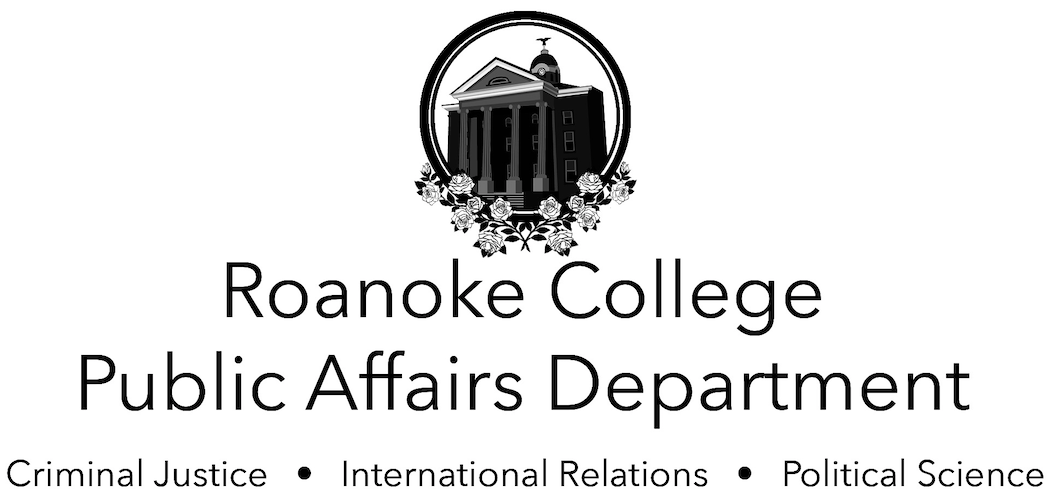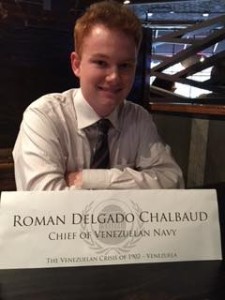This semester’s Model UN team consisted of Wes Knowles ’17 (Venezuelan War Cabinet), Emma Von Der Lieth ’17 (Libera Committee of Public Health), and Hunter Neary ’18 (Poland/Lithuanian Crisis 16th Century). They participated in the conference from March 26th to the 29th at they University of Virginia in Charlottesville.
I spoke to Wes for this article and he told me some interesting bits of information. The role he played was the Chief of the Venezuelan Navy, Roman Delgado Chalbaud, who he is a real figure from history. In 1902, the Venezuelans were blockaded by the Germans over unpaid debts for domestic infrastructure loans. The goal of this committee was to work in conjunction with two other committees (representing Germany and the United States) to try and come to a peaceful agreement much like what actually occurred in 1902-1903.
Unlike the last conference, when RC represented Gabon in Chicago, this council is labeled as “crisis” committee which means it is essentially guided using UN rules. The idea is to place yourself in a difficult situation and attempt to work through some of the struggles of the men and women within that time frame. For every solution and resolution that they passed, the committee chair and staff would come up with a scenario to make the situation worse or better to create a custom feel. It was much more relaxed than in Chicago, and the real goal was fun. The committee was chaired by students, and the simulation was also run by students at UVA.
The most challenging factor for the team was the speed at which they must operate. Because there is a “crisis”, the situation is constantly changing, and it requires quick and decisive action. “The chair of the committee may force you to take a vote on something that deserves hours of debate, but you have to try and convince people to take a different side in 45 seconds or less,” Wes said. Everything is constantly in flux, and the goal is to create chaos. You have to find your mental center in all of this, and be willing to thrive in a very dynamic and cut throat atmosphere. On the other hand, it is much more fun than typical Model UN which relaxes delegates into being bolder than they ordinarily would.
For the team, this was supposed to be a fun exercise. There were some challenging moments, but the real goal of this was to show that Model UN can be fun. To Wes’ knowledge, this was the first time that Roanoke Model UN has attended two conferences in the same academic year, and it was the first crisis conference that they have ever done. Educationally his hope is that of those of them who attended now understand how hard international policy formulation really is. The international system has come a long way, and working in 16th century Lithuania, 21st Liberia, and 20th century South America all present different challenges. Every actor has interests, and unless those interests can be met, policy cannot be made. No matter what the era is, that remains unchanged.
Interested in joining Model UN next year? Contact waknowles@mail.roanoke.edu

